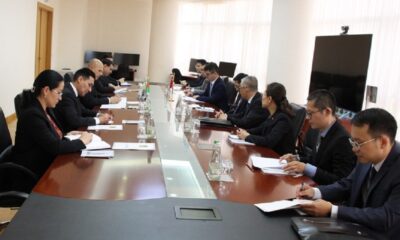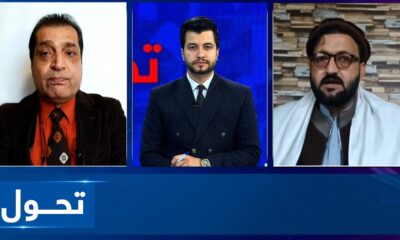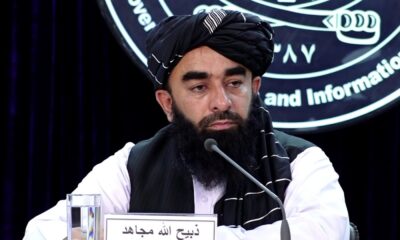Regional
Erdogan accuses opposition of working with Biden

Turkish President Tayyip Erdogan held his last election rallies in Istanbul on Saturday, accusing the opposition of working with U.S. President Joe Biden to topple him while making a final appeal ahead of the biggest challenge to his 20-year rule.
Polls show Erdogan trailing the main opposition candidate Kemal Kilicdaroglu a day ahead of one of the most consequential elections in Turkey's modern history. However, if neither of them win more than 50% of the vote and secure an outright win, the vote will go to a runoff on May 28, Reuters reported.
Voters will also elect a new parliament, likely a tight race between the People's Alliance comprising Erdogan's conservative Islamist-rooted AK Party (AKP) and the nationalist MHP and others, and Kilicdaroglu's Nation Alliance formed of six opposition parties, including his secularist Republican People's Party (CHP), established by Turkey's founder Mustafa Kemal Ataturk.
Polls will open at 8 a.m. (0500 GMT) and close at 5 p.m. (1400 GMT). By late on Sunday there could be a good indication of whether there will be a runoff vote for the presidency.
Erdogan's campaign over the past month has focused on his government's achievements in the defense industry and infrastructure projects, and his assertion that the opposition would roll back such developments.
One of his talking points has been that the opposition is receiving orders from the West, and that they will bow down to Western nations' wishes if elected.
At a rally in Istanbul's Umraniye district, Erdogan recalled comments made by U.S. President Joe Biden and published by the New York Times in January 2020, when he was campaigning for the White House. At that time, Biden said Washington should encourage Erdogan's opponents to defeat him electorally, stressing he should not be ousted in a coup.
The comments, which resurfaced later that year in a video that made Biden the most popular topic on Twitter in Turkey, were condemned by Ankara at the time as "interventionist."
"Biden gave the order to topple Erdogan, I know this. All my people know this," said Erdogan, 69. "If that is the case, then the ballots tomorrow will give a response to Biden too," he added.
Erdogan also criticized Kilicdaroglu for his comments on Russia, calling Moscow an important partner for Turkey. "Russia has been one of our most important allies regarding agriculture products," he said.
Turkey's Western allies have been irked by closer ties between Ankara and Moscow under Erdogan. Turkey is a member of NATO, which has stood staunchly behind Kyiv since Moscow invaded its neighbor last year but it has not imposed sanctions on Russia.
Kilicdaroglu told Reuters on Friday that his party has concrete evidence of Russia's responsibility for the release of "deep fake" online content ahead of Sunday's elections. He did not present the evidence and Reuters could not independently verify it.
But he added that if he wins the presidency he will maintain Ankara's good ties with Moscow.
Regional
Gunmen attack Pakistan passenger vehicles, killing at least 38 people

Gunmen opened fire on passenger vehicles in a tribal area in northwestern Pakistan on Thursday, killing at least 38 people and wounding 29, the chief secretary of the Khyber Pakhtunkhwa province, Nadeem Aslam Chaudhry, said.
Reuters reported that among the fatalities in the attack, which occurred in the Kurram tribal district, were a woman and a child, Chaudhry said, adding: “It’s a major tragedy and death toll is likely to rise."
No group claimed responsibility for the incident.
"There were two convoys of passenger vehicles, one carrying passengers from Peshawar to Parachinar and another from Parachinar to Peshawar, when armed men opened fire on them,” a local resident of Parachinar, Ziarat Hussain told Reuters by telephone, adding that his relatives were travelling from Peshawar in the convoy.
President Asif Ali Zardari, in a statement, strongly condemned the attack on passenger vehicles.
Regional
Pakistan’s ex-PM Imran Khan gets bail in state gifts case, his party says

A court in Pakistan granted bail to jailed former prime minister Imran Khan in a case relating to the illegal sale of state gifts, his party said on Wednesday.
Khan, 71, has been in prison since August 2023, but it was not immediately clear if the embattled politician would be released given that he faces a number of other charges too, including inciting violence against the state, Reuters reported.
"If the official order is received today, his family and supporters will approach the authorities for his release," one of his party's lawyers, Salman Safdar, told journalists. Safdar added that, as far as he knew, Khan had been granted bail or acquitted in all the cases he faced.
However, Information Minister Attaullah Tarar, a member of the ruling Pakistan Muslim League-Nawaz party, told Geo TV Khan lacked bail in cases in which he is charged with planning riots by his supporters in the wake of his arrest in May last year.
Khan denies any wrongdoing, and alleges all the cases registered against him since he was removed from power in 2022 are politically motivated to keep him in jail.
The case in which he was granted bail on Wednesday by the Islamabad High Court is known as the Toshakhana, or state treasury case.
It has multiple versions and charges all revolving around allegations that Khan and his wife illegally procured and then sold gifts worth over 140 million rupees ($501,000) in state possession, which he received during his 2018-22 premiership.
Khan and his wife, Bushra Bibi, were both handed a 14-year sentence on those charges, following a three-year sentence handed to him in late 2023 in another version of the same case.
Their sentences have been suspended in appeals at the high court.
The gifts included diamond jewellery and seven watches, six of them Rolexes - the most expensive being valued at 85 million rupees ($305,000).
Khan's wife was released last month after being in the same prison as Khan for months.
Regional
Iran keeping ‘door open’ to talks with Trump
Iran’s deputy foreign minister said that coercion and intimidation would prove ineffective in the long-running stand-off between Iran and the West over Tehran’s nuclear programme
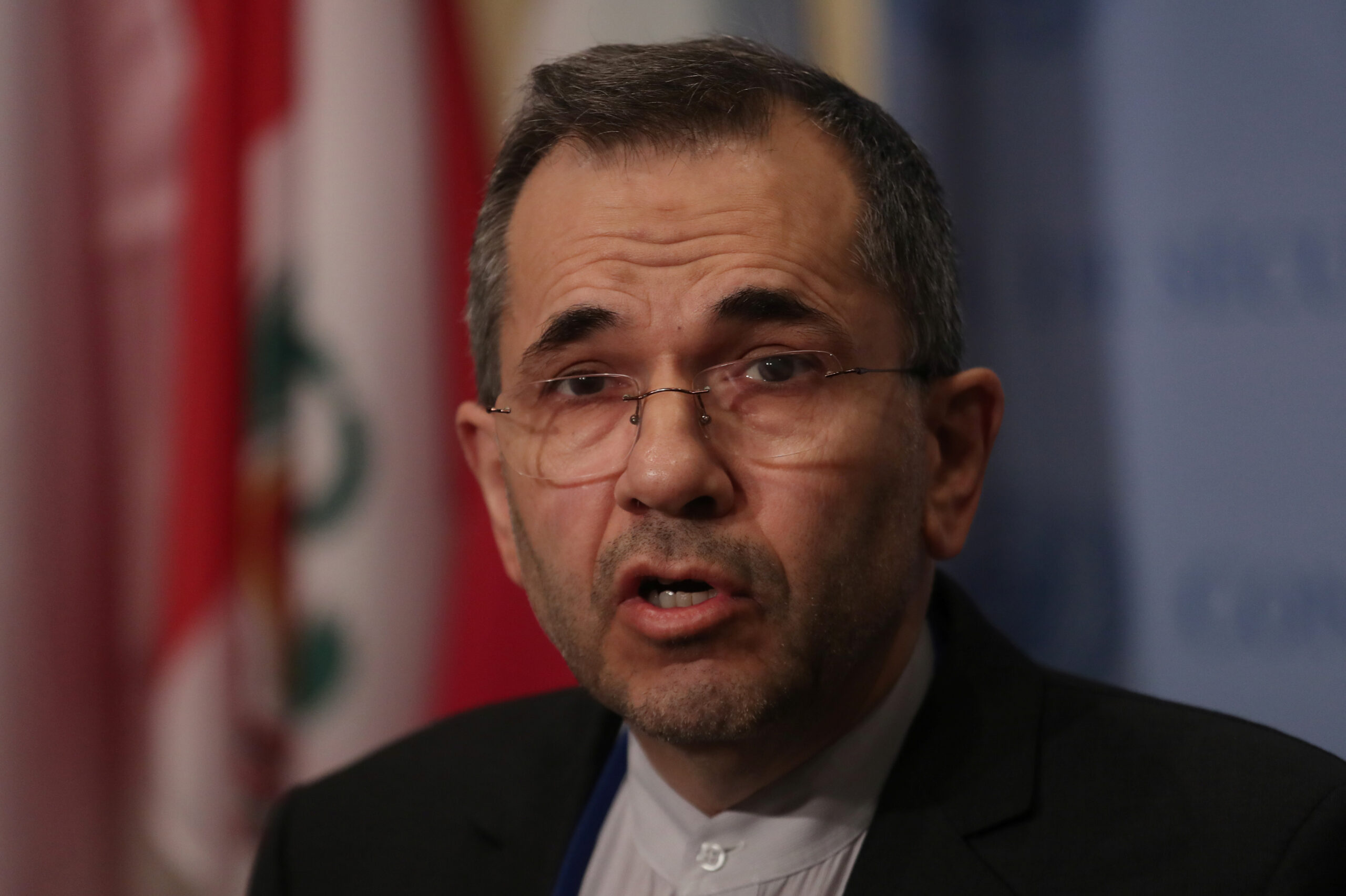
Majid Takht-Ravanchi, Iran’s deputy foreign minister for political affairs says Tehran has kept the door open to negotiations with President-elect Donald Trump’s administration, while warning the US that any attempt to reimpose “maximum pressure” on the country would fail to extract concessions.
Speaking to the Financial Times, Takht-Ravanchi said that coercion and intimidation would prove ineffective in the long-running stand-off between Iran and the West over Tehran’s nuclear program.
“As for negotiations, we need to observe US policy and decide how to respond accordingly,” Takht-Ravanchi said.
“Right now, the key question is how the new administration will approach Iran, the nuclear issue, regional security and the Middle East. It’s premature to speculate about specific outcomes.”
Takht-Ravanchi said the nuclear deal reached with the West in 2015, from which Trump later withdrew the US, “could still serve as a foundation and be updated to reflect new realities”, adding that “if the other parties return to their commitments, we have repeatedly said that we are willing to do the same”.
He added: “We do favour negotiations, as we proved [with that deal] . . . But who sabotaged the negotiations previously? It was the Trump administration who was unwilling to negotiate.”
At the same time, the veteran diplomat and former nuclear negotiator warned that if Trump again takes a tough approach, “maximum pressure will be met with maximum resistance”.
“We will continue to work around sanctions, diversify our trade partners and strengthen regional relations to maintain calm,” he added.
During his first term as US president, Donald Trump sparked a nuclear stand-off with Iran after he abandoned the 2015 accord, known as the JCPOA, that Tehran had signed with world powers, and imposed waves of sanctions on the Islamic republic in what he called a “maximum pressure” campaign.
He accused Tehran of violating the “spirit” of the agreement by funneling newfound revenue to support its regional proxies, notably Lebanon’s Hezbollah.
In retaliation, Iran dramatically expanded its nuclear activities, and is enriching uranium near to weapons-grade despite insisting its programme is for civilian purposes, Financial Times reported.
People familiar with Trump’s thinking have told the Financial Times his administration would try to “bankrupt” Iran to force the republic into talks.
The regional and nuclear crises have stoked fears in Tehran that Trump will once again try to drive Iran’s oil exports — its vital source of hard currency — to zero. In recent years Iran has substantially increased oil sales, mainly to China.
Takht-Ravanchi sought to downplay the potential for tighter oil sanctions under a second Trump presidency.
“While developments may occur, they won’t lead to significant changes,” he said, adding: “If the Trump administration decides to pursue the maximum pressure policy in the oil market again, it will surely fail. In today’s world, no single country can dictate terms to the entire international community.”
For now, he said, “We hope he doesn’t repeat the same mistake because the outcome will be no different.”
-
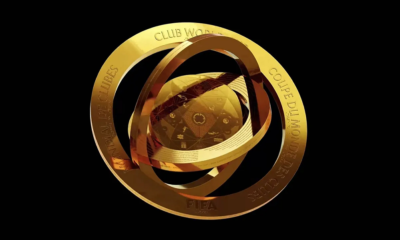
 Sport5 days ago
Sport5 days agoFIFA unveils Innovative Club World Cup Trophy ahead of new tournament in 2025
-

 Regional5 days ago
Regional5 days agoIndia’s successful test of hypersonic missile puts it among elite group
-
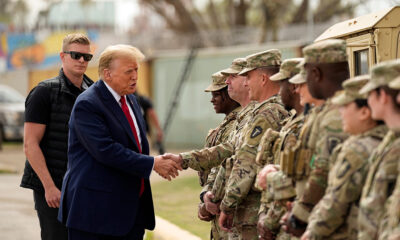
 Latest News5 days ago
Latest News5 days agoTrump team compiling list of military officers responsible for US withdrawal from Afghanistan
-

 Latest News5 days ago
Latest News5 days agoCanada sent 19 failed asylum seekers back to Afghanistan last year
-

 Sport4 days ago
Sport4 days agoAbu Dhabi’s thrilling T10 tournament just days away
-

 World4 days ago
World4 days agoBiden allows Ukraine to use US arms to strike inside Russia
-

 Sport4 days ago
Sport4 days agoAfghanistan beat UAE by 169 runs in U19 tri-series
-

 Business5 days ago
Business5 days agoMullah Baradar inaugurates a blanket factory in Kabul


